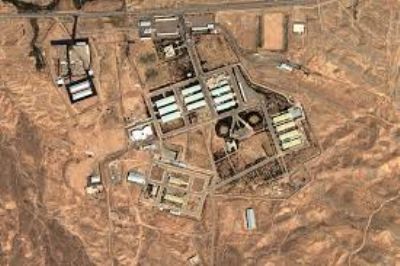"The head of the International Atomic Energy Agency (IAEA) last week admitted an inconvenient truth. The U.N. watchdog, said Yukiya Amano, has proven unable to verify Iran's compliance with Section T of the 2015 nuclear deal, which prohibits activities that could contribute to the development of a nuclear explosive device.
This disclosure comes as no surprise to critics of the Joint Comprehensive Plan of Action (JCPOA), who have long noted its failure to secure full access to key military sites such as Parchin, where Tehran previously engaged in weaponization efforts. But Amano's statement also quashes another myth. Contrary to widespread media reporting, the IAEA has never fully certified Iran's compliance with the JCPOA.
Since the JCPOA's implementation in January 2016, the IAEA has issued multiple reports that Iran and key world leaders have described as certifications of Tehran's JCPOA compliance...
In fact, none of the IAEA's reports states that Iran has complied with the JCPOA. Rather, as the JCPOA notes, the IAEA's mandate primarily entails monitoring and reporting on Tehran's nuclear-related actions (or lack thereof) pursuant to the JCPOA's provisions. Individual members of the Joint Commission, the body established by the JCPOA to monitor its implementation, determine independently whether Iran's reported behavior constitutes JCPOA compliance. The Joint Commission consists of representatives from each JCPOA participant state and the EU.
As Amano put it in March 2017, 'we are serving as eyes and ears of the international community, we are on the ground 24/7, and we can state that the JCPOA is being implemented.' At the same time, he added, 'it is the responsibility' of each JCPOA member to reach an 'interpretation' and a 'judgment,' based on the IAEA's reporting, of 'whether or not (Iran is) in compliance.'
The distinction between the roles of the IAEA and of the Joint Commission harbors significant policy implications. Misleading claims of IAEA certification of Iranian compliance implicitly bestow an authoritative legal imprimatur on Tehran's nuclear activities where none exists. In so doing, they obscure not only key omissions in the IAEA's reporting of Iranian behavior, but also evidence that Iran has violated the deal's letter and spirit - problems that should have elicited a response by the IAEA and members of the Joint Commission.
Thus, as the Institute for Science and International Security has documented, Tehran has repeatedly violated the letter of the JCPOA by engaging in research and development of advanced centrifuges. Meanwhile, it has routinely defied U.N. Security Council Resolution 2231 - not to mention the JCPOA's spirit - by launching more than a dozen ballistic missiles, the key delivery vehicle for nuclear weapons..."
October 10, 2017
(Mis)Reading the IAEA reports on Iran's nuclear program

The Iranian military complex at Parchin
Date
October 10, 2017
Title
(Mis)Reading the IAEA reports on Iran’s nuclear program, The Hill
Original Source
